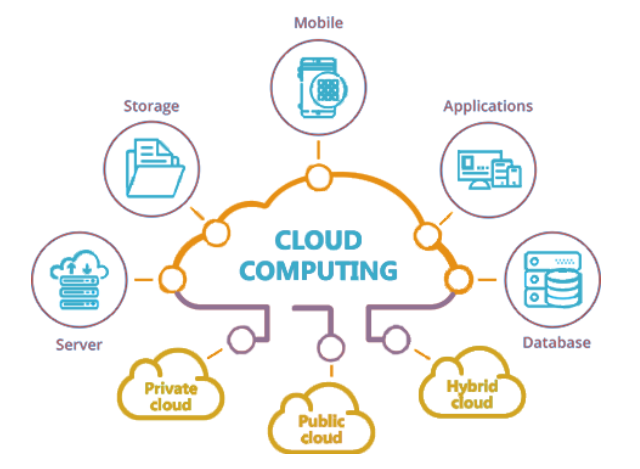
Leveraging Cloud Computing for Small Businesses
In today's rapidly evolving digital world, technology has become an integral part of businesses, regardless of their size. One of the most significant technological advancements in recent years is cloud computing, which has revolutionized the way companies manage their IT infrastructure and data. With cloud computing, businesses can store, manage, and access their data and applications over the internet, eliminating the need for in-house IT infrastructure and resources.
Introduction to Cloud Computing

Cloud computing is a revolutionary technology that has transformed the way businesses operate. It is a model of delivering computing resources and services over the internet, rather than owning and maintaining physical infrastructure. In cloud computing, resources such as servers, storage, databases, and software are managed by third-party providers and made available to customers over the internet. This allows businesses to access and use these resources as needed, without having to invest in, maintain, and upgrade their own infrastructure.
Benefits for small businesses

Small businesses can reap numerous benefits from leveraging cloud computing. Firstly, it enables them to save money on IT infrastructure and maintenance costs. Instead of investing in expensive hardware and software, they can subscribe to cloud services that cater to their needs, paying only for what they use. Secondly, cloud computing provides small businesses with greater flexibility and scalability. They can easily scale up or down their resources, depending on their business requirements, without worrying about investing in more hardware.
Types of Cloud Services and their suitability for small businesses
Cloud computing services can be broadly classified into three categories - Infrastructure as a Service (IaaS), Platform as a Service (PaaS), and Software as a Service (SaaS). IaaS provides virtualized computing resources, including servers, storage, and networking, while PaaS provides a platform for developing, testing, and deploying applications. SaaS provides ready-to-use applications and software over the internet. Small businesses can choose the type of cloud service that best suits their needs and goals, based on their specific requirements and budget.
Security and privacy concerns in Cloud Computing and how to mitigate them
One of the primary concerns that small businesses have about cloud computing is the security and privacy of their data. However, cloud service providers invest heavily in security measures and technologies to protect their customers' data. Small businesses can mitigate these concerns by choosing a reputable and reliable cloud service provider and implementing best practices for securing their data in the cloud. These best practices include using strong passwords, encryption, and multi-factor authentication.
Best practices for adopting and using Cloud Computing for small businesses

Small businesses can get the most out of cloud computing by following best practices for adoption and use. These include choosing the right cloud service for their needs, implementing strong security measures, regularly backing up their data, and keeping their software and systems up-to-date. They should also have a clear understanding of their data governance policies, such as who has access to their data and how it can be used.
Recommendations for small businesses considering Cloud Computing
The small businesses who are considering Cloud Computing should keep the following things in mind:
Assess your current IT infrastructure and determine the specific needs of your business.
Research different cloud providers and compare their services, costs, and reliability.
Consider a hybrid approach, where some systems and data remain on-premises and others are moved to the cloud.
Work with a trusted partner or consultant who has experience in cloud migration and can help ensure a smooth transition.
Start small, with non-critical applications and data, and gradually expand your use of the cloud.
Conclusion

Cloud computing has emerged as a game-changer for small businesses. It has opened up new avenues for small businesses to access cutting-edge technologies, without having to invest in expensive IT infrastructure. The benefits of cloud computing are numerous and include cost savings, improved security, scalability, and the ability to access data and applications from anywhere, at any time. However, small businesses should be mindful of the security and privacy concerns inherent in cloud computing and take the necessary steps to mitigate these risks.
Appreciate the creator